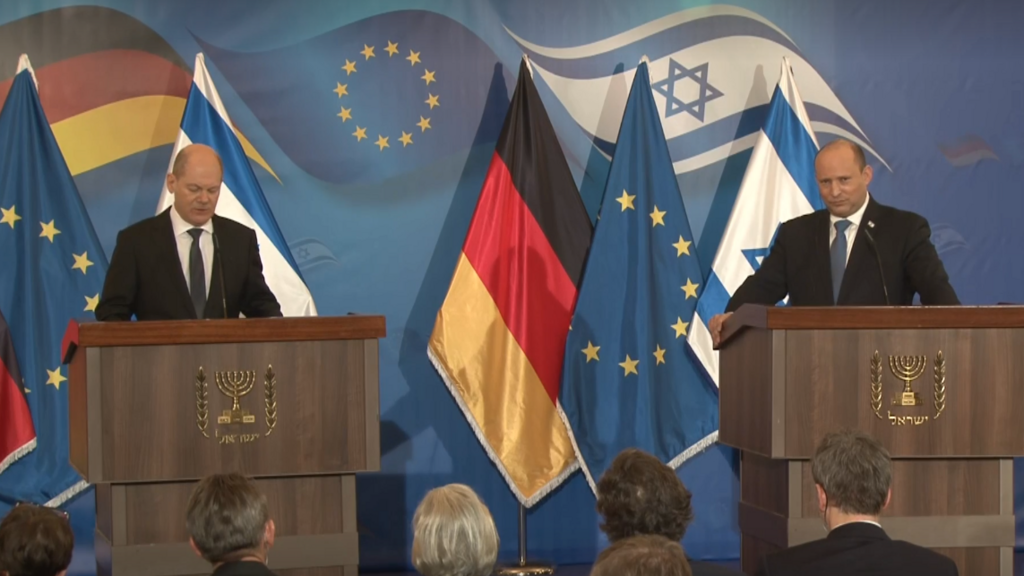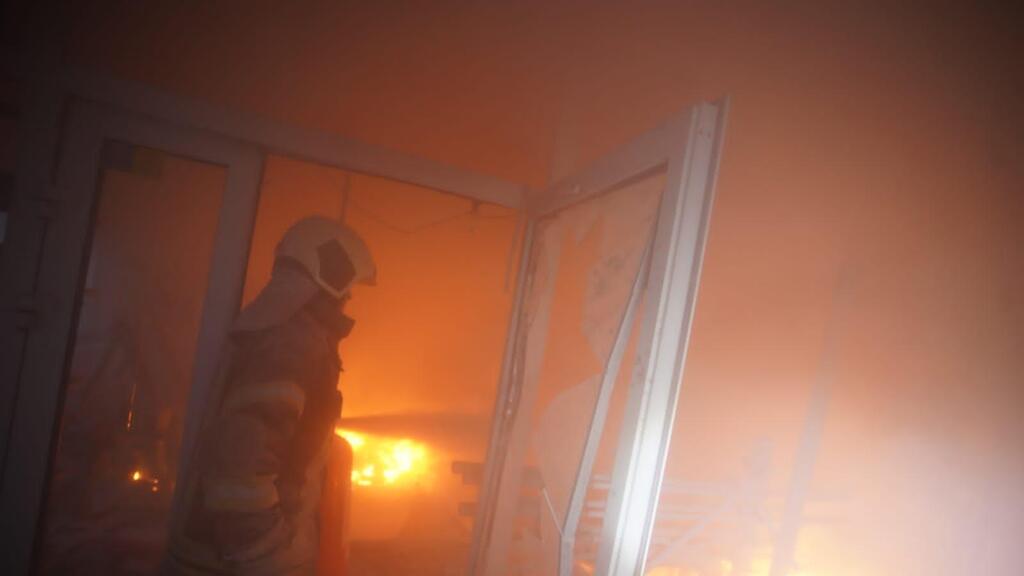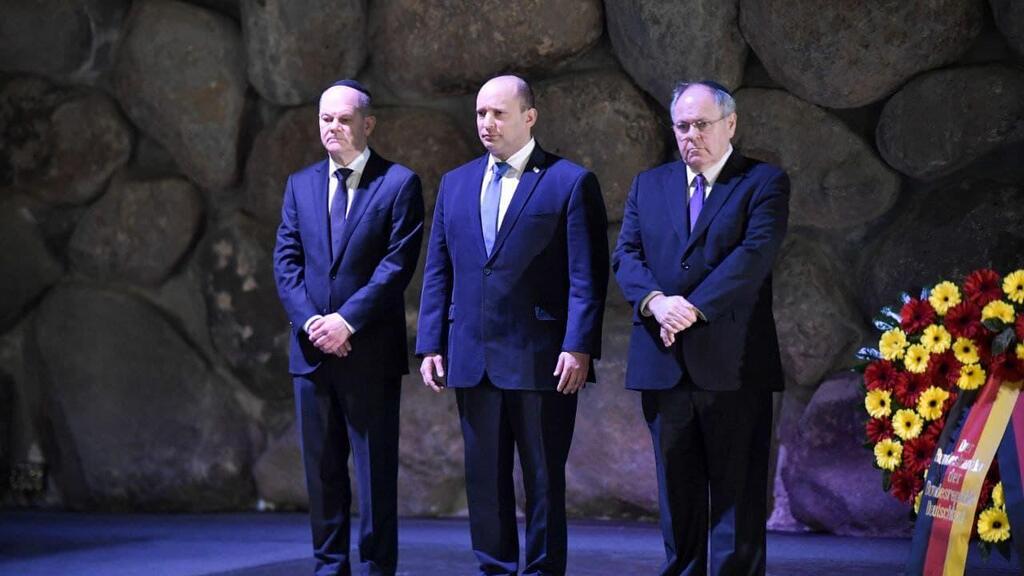Prime Minister Naftali Bennett said on Wednesday that he and visiting German Chancellor Olaf Scholz had a lengthy conversation.
"You insisted on coming although you had to cut your visit short under the circumstances," Bennett said referring to the Russian invasion of Ukraine.
3 View gallery


German Chancellor Olaf Scholz and Naftali Bennett during a press conference on Tuesday
(Photo: Alex Gamburg)
Sholtz is in Jerusalem on his first official visit to Israel since taking office.
"It is our duty as leaders to do everything possible to end the bloodshed and bring the warring sides to the negotiating table, "Bennett said in a press conference following the joint visit to Yad Vashem.
Bennett once again chose not to explicitly condemn Russia for its invasion of Ukraine.
"Israel sent 100 tons of humanitarian assistance, most of it medical supplies and we are determined to continue that effort and even increase it," Bennett said.
When a journalist asked the prime minister why Israel was refusing to impose sanctions on Russia, Bennett attempted to avoid the question.
"We have a measured and responsible policy aimed at assisting the Ukrainian people. We will do whatever we can," he said.
Scholz said it was important for him to come to Israel despite the complicated situation in Europe.
3 View gallery


Fire breaks out in aftermath of Russia's missile strike on the Babi Yar memorial in Kyiv on Tuesday
(Photo: State Emergency Service of Ukraine)
"The news from Ukraine is terrible," the chancellor said. "We are concerned by the evolving conflict and must do everything possible to change the situation. We already see the number of refugees forced to flee. Many of them arriving in Europe and their number will only grow."
"We are trying to bring about an end to the fighting and to peace talks. Every day of battles causes destruction of infrastructure, loss of civilian and military lives on both sides and we must end it," he said.
When asked about his view of Israel's seemingly hesitant response to the war Scholz said the danger associated with war cannot be understated.
"Our stance was clear. We do not attack militarily. That is up to NATO. There will not be military intervention because that is not appropriate now," the chancellor said.
"We support a number of economic options. That is the decision we have taken and what we can do now. Sanctions will have their effect and the steps we have taken were right. We all agree persecution of people cannot be accepted."
For long weeks, Germany refused to send lethal weapons to Ukraine basing the decision on its dark Nazi past but had changed course recently when Scholz announced he would invest 100 billion euros in his country's defense this year, "to protect democracy and freedom."
3 View gallery


German Chancellor Olaf Scholz with Naftali Bennett and Yad Vashem president Dani Dayan
(Photo: GPO)
Scholz said he was moved by the damage caused to the Babi Yar memorial in Kyiv on Tuesday, and by his visit at Yad Vashem.

